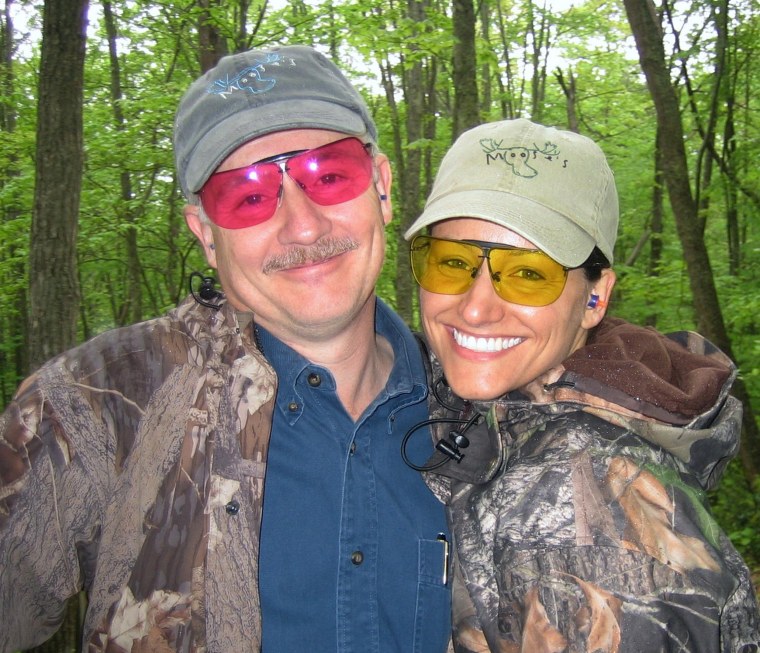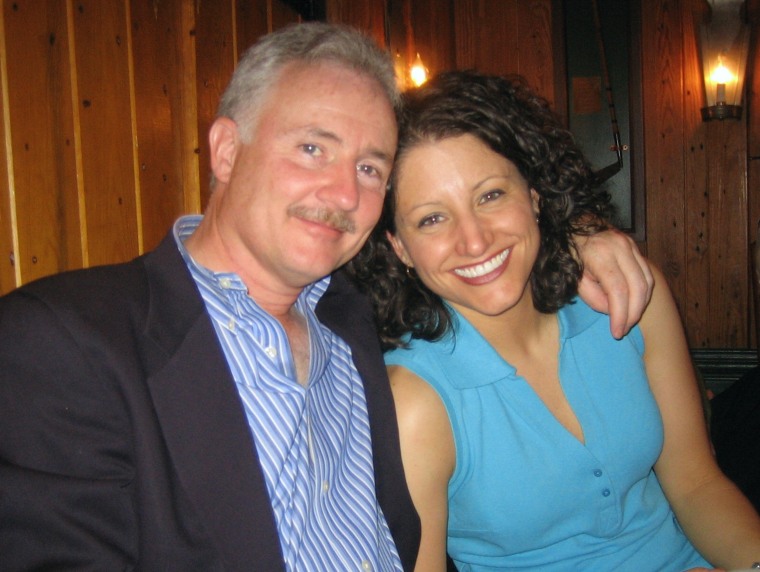It was 2016 when I got a call at work. It was the house alarm company. My husband, Russ, who picked up the kids from school each day, had arrived home and wasn’t able to turn the blaring alarm off.
I got home later that day and everything was fine. But I noticed Russ asking repetitive questions. Forgetting what time to pick up the kids. And he couldn’t remember the alarm code — the same one we had used for years.
In the time leading up to the alarm company incident, things between Russ and me had not been good. He was moody and irritable. He was angry. I thought we were headed toward divorce. But now I know those were the very first signs of tick-borne illness.

Because Russ was very outdoorsy, and because I knew he had ticks on him over the years, Lyme disease was actually one of the first things that came to mind when I started looking into the symptoms of my husband’s cognitive decline. The thing was, though, that Russ had never had a fever or a rash associated with ticks that we knew of, and when tested with the standard Lyme screener had come up negative.
We also got bloodwork from an integrative medicine doctor to take a deeper look at what was happening with Russ. It showed nothing out of the ordinary. Tick-borne illnesses, like Lyme, fell off my radar. Russ went to a neurologist for cognitive testing and his decline was far worse than I even suspected. He wasn’t able to do simple math patterns that my 6-year-old could easily do at the time. He was a computer scientist and electrical engineer. I was flabbergasted. The neurologist said he either had a stroke event or Alzheimer’s.
An MRI showed no stroke event. A PET scan showed severe deficiencies in metabolism patterns, consistent with late-stage Alzheimer’s. He was 60.

Early onset Alzheimer’s, however, is not typically a quick decline without a genetic component, which Russ didn't have. In Russ’ case, though, the decline was swift. But after about nine months, I accepted the diagnosis. That is, until I spoke to my brother, Scott, whose wife had been suffering from chronic illness for years and had just been diagnosed with multiple tick-borne illnesses. Scott told me, “I think this is what’s going on with Russ.”
Russ was tested with a PCR test, the same way we now test for COVID-19, which looked for the organism itself rather than the antibodies. Russ had three tick-borne infections — the three Bs as they’re known — Borrelia (otherwise known as Lyme disease), Bartonella and Babesia. (Editor’s note: While Bell does not know which tick-borne infection caused the illness resembling Alzheimer's, Elizabeth Landsverk, M.D., who specializes in the treatment of dementia and Alzheimer's, told TODAY that untreated Lyme disease can cause brain fog and neurological symptoms that mirror the symptoms of Alzheimer's, as well as "toxic scarring to the brain.")
We had wasted 15 months. Still, there was hope. Infections, at least, can be treated. So that’s what we did. And the next year can only be described as a roller coaster. Antibiotics would help, and then Russ would come off them and decline. Some of the more well-known symptoms of Lyme came up — joint pain, swelling in his knees. But cognitively, he continued to decline.
After 18 months of treatment, I made the most difficult decision of my life — to move Russ to a respite care facility. It was three years ago this month.
For a time, Russ was OK. He had socialization I couldn’t provide at home. He was receiving good medical care. I visited him almost every day and helped with showering and things of that nature. It went on that way until March 2020. Then COVID hit, and I couldn’t see Russ for six months.

I finally did see him because he was moved to a hospital because of a seizure. It was now September of 2020. He had lost so much weight. He was hunched over. The man who had once been so engaging — the life of the party — was vacant. People asked if I thought he recognized me. I didn’t think so. Russ passed away in January of 2022.
Throughout this journey, I journaled. I had lost my partner, the person I communicated with every day. Journaling my experiences was an outlet. It was during 2020 that I wrote my memoir, "What Lurks in the Woods." It was published on Oct. 23, 2021 — Russ’s 65th birthday. I wanted to honor his life, but also to raise awareness for tick-borne illnesses. They don’t always present in a typical manner, and if you or a loved one is experiencing sudden mood changes, anxiety or depression, I encourage you to find a Lyme-literate doctor through the database of the International Lyme and Associated Diseases Society (ILADS). I wish I had done that sooner.
This interview has been edited and condensed.
